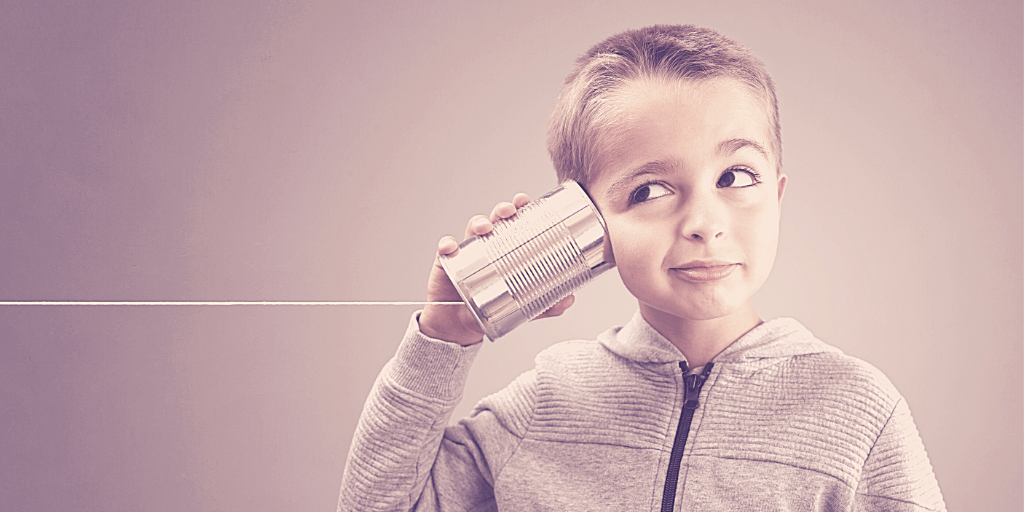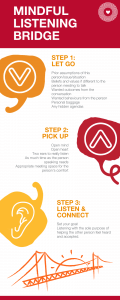
Listen like you have never listened before
Pat Jewell shares how, despite 10 years of development and training, mindful listening has remained a central skill for parents in the Bringing Up Great Kids Program.
This article was written by Pat Jewell, Program Manager of the Parenting and Early Years Program at the Australian Childhood Foundation.
Over ten years ago now, I and a team of professionals experienced in working with parents worked together to develop the Bringing Up Great Kids (BUGK) program. At the time, the program was developed to offer a unique alternative in the range of parenting programs offered in Australia. It draws from the evidence base about the importance of attachment narratives (Siegel, 2013) and the increasing recognition of the role of mindful practices in positive mental health and wellbeing outcomes.
Ten years on, the program has since been evaluated and shown to be an effective tool in helping parents to build nurturing relationships with their children. We have now trained thousands of independent parenting group facilitators around the globe and have updated the original program, developed BUGK: facilitating groups online and adapted versions such as BUGK: Parenting after Family Violence and BUGK for Aboriginal families with more versions still being developed (you can find out more on our website here).
Something that hasn’t changed over the years, is the importance of the concept of mindful listening.
In our materials and group settings, we define mindful listening as: ‘To listen in reciprocal relationships with no judgment, just to try to understand’ (from Judy Atkinson, 2017, the Value of Deep Listening-The Aboriginal Gift to the Nation).
I was reminded of the importance of this skill in a recent training session when a participant mentioned sometimes feeling helpless when the problems of another person seem insurmountable. In response, another participant reminded us all of the power of mindful listening, that ‘just listening’ can support the speaker to tell their story and in doing so work out what they need to do for themselves.
 Encouraged by this, the group came up with a new metaphor where mindful listening was seen as a bridge which could connect you, the listener, with a person needing to talk. We extended the metaphor, describing how we approach the bridge and what we might need to do to get ready to listen, and further, what we might need to let go of to allow ourselves to really listen?
Encouraged by this, the group came up with a new metaphor where mindful listening was seen as a bridge which could connect you, the listener, with a person needing to talk. We extended the metaphor, describing how we approach the bridge and what we might need to do to get ready to listen, and further, what we might need to let go of to allow ourselves to really listen?
The participants brainstormed these ideas of what they might need to let go of that might get in the way of their ability to mindfully listen:
- Prior assumptions of this person/issue/situation
- Beliefs and values if different to the person needing to talk
- Wanted outcomes from the conversation
- Wanted behaviours from the person
- Personal baggage
- Any hidden agendas
And these ideas of things that might need to be picked up:
- Open mind
- Open heart
- Two ears to really listen
- As much time as the person speaking needs
- Appropriate meeting space for the person’s comfort
The metaphor stayed with me and I felt it would be one of value to share with this professional network.
What else might you need to let go of and collect to allow you to really listen?
